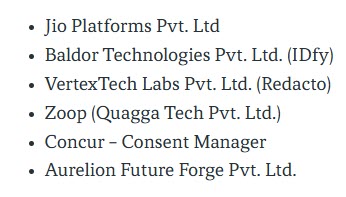As expected, the law of DPDPA is now before the Supreme Court. Normally Courts are expected to step in when a citizen has an adverse impact of the law. and seeks remedy. However, in India, almost every law that gets passed by the Parliament is srutinized by the supreme Court even before it is implemented under the speculation that “This is unconstitutional, Give a stay and later scrap the law”. The same thing has now happenned for DPDPA 2023. There are always some so called Public Interested litigation specialists who contrive the reason to challenge the law and hamper the progress. Supreme Court has allowed itself to be used as an instrument of delaying legislation in the country and the trend continues.
I refer to the article in “Thewire.in” which refers to a petition of one RTI activist Mr Venkatesh Nayak to ensure that “Two decades of tranparency in the life fo public authorities is not reversed into an era of dark opacity”. The case would be argued by Ms Vrinda Grover and perhaps also Mr Prashat Bhushan, before a bench of Justices Suryakant, Joymalya Bagchi and Vipul Pancholi today.
We donot have a copy of the petition to understand the logic but the article makes the following mentions which we can comment on.
1.Section 44(3) is already in force.
2. Section 44(3) amends RTI act to broadly exempt the disclosure of information deemed to be “Personal” and provides a “Blanket bar” on an obligation to disclose all personal information.
3. Section 4493) contravenes Article 19(1)(a) of the constitution and violates the right to equality by equating privacy oc public functionaries to that of ordinary citizens”.
Another petition that has been filed is Reporters Collective & Nitin Sethi v. Union of India (W.P.(C) No. 177/2026) This petition extends the objections and seeks to strike down the entire DPDPA as unconstitutional. Objections are made on Sections 5, 6, 8, 10, 17, 18, 19, 36, and 44(3), alongside Rules 3, 6, 7, 8, 9, 13, 16, 17, and 23 of the 2025 Rules.
Another petition filed by Prashant Bhushan for NCPRI petition (W.P.(C) No. 211/2026 also reflects a similar view.
While we appreciate the legal acumen of those who have filed these petiotions, it is clear that the objective of this elite exercise is to delay DPDPA implementation to the extent possible. It is unlikely that the Supreme Court may be persuaded to consider the objections but the petition has the power to disturb the industry’s resolve to start implementation immediately.
The Urban Naxalites would be happy…that they have placed one more hurdle on the Government to do what it wants to do.
For the time being, let us watch what the Supreme Court does on this petition. We shall analyse the case as it develops.
Probably a notice would be issued to the Government in this regard. We donot expect any stay at this point of time.
I request any of the readers having a copy of the petitions to send me a copy so that we can take a deeper look at the same.
Naavi
Also Refer:









